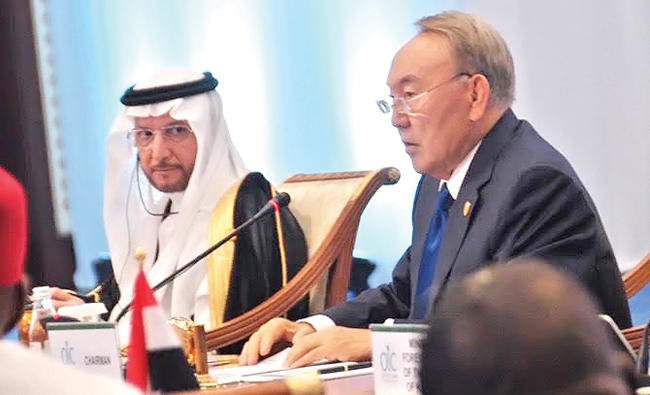
OIC countries pledge to achieve progress in science, technology
Leaders and heads of delegations of the Organization of Islamic Cooperation (OIC) member countries have pledged to achieve progress in science and technology.
At the conclusion of the 1st Islamic Summit on Science and Technology in Astana, Kazakhstan on Monday, participants expressed thanks to Kazakhstan President Nursultan Nazarbayev for hosting the summit and his initiatives to enhance the OIC’s role on the global stage, and harness economic and scientific potentials for all.
They also congratulated the Republic of Kazakhstan on its success for the organization of “Astana Expo 2017” which displayed innovative technologies on renewable energy and the importance of alternative technologies to save energy in developing countries.
The participants further agreed to work individually and collectively to boost cooperation between member countries to achieve sustainable development and face community challenges of the 21st century.
They stressed the need to eradicate poverty in their societies, including intellectual poverty, and to highlight creative and innovative power in member countries, taking into consideration some of negative impacts of modern sciences on the communities of the 21st century.
Participants urged all countries to make knowledge and its application a key feature in the way of life, labor and decision making. In this context, they emphasized the need to increase investments in science, technology and innovation, and that technology transfer represents one of the major ways to speed up the pace of economic development in developing countries.
They reaffirmed the importance of the protection of intellectual property to enhance capacities in science, technology and innovation, and to mobilize such potentials to create job opportunities, promote human capital and achieve comprehensive growth.
The meeting expressed keenness to achieve objectives and programs of the OIC’s science and technology 2026 objectives through a series of initiatives and programs in education, basic skills and applied sciences which will be undertaken by the concerned parties in OIC member countries.
Attendees drafted a series of recommendations regarding the increase of funding to develop education, science and health to achieve the objectives contained in the OIC’s work program. In this context, they welcomed the Kazakhstan president’s initiative, which aims to integrate Islamic and political structures in transport, energy, commerce, and investment and encourage OIC member countries to work jointly in drawing up science mega-programs.
The meeting called on OIC member countries to work actively to enhance and support cooperative research programs in agriculture, food security and environmental systems including combating drought and desertification. It also called for revision of the security of digital content through studying and unification of the existing laws and policies, in response to the cybersecurity of the member countries.
They welcomed the role of the OIC in food security and stressed the need to support its activities in accordance with the decisions of the OIC general assembly on food security, which was held in Astana in April 2016.
They praised efforts exerted by the OIC general secretariat and other affiliated agencies, notably the centers of statistical, economic and social research, the Islamic Development Bank, the Islamic Educational, Scientific and Cultural Organization, and the Islamic Chamber of Commerce, Industry and Agriculture, for their role in enhancing inter-cooperation within the framework of the OIC in science, technology and innovation.


























